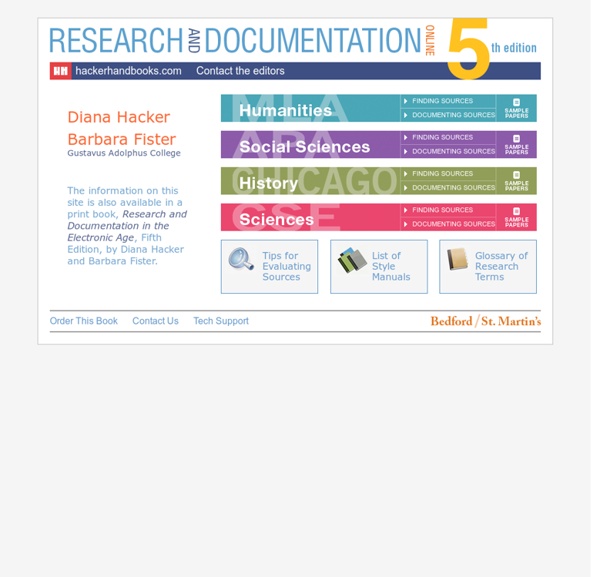



Plagiarism Tutorial: Test Your Knowledge Plagiarism is a serious academic offense! The University of Southern Mississippi's undergraduate and graduate bulletins both include statements about plagiarism: "When cheating is discovered, the faculty member may give the student an F on the work involved or in the course. If further disciplinary action is deemed appropriate, the undergraduate student should be reported to the Dean of Students. "In addition to being a violation of academic honesty, cheating violates the code of student conduct and may be grounds for probation, suspension, expulsion, or all three." When a student avoids plagiarizing someone else's work, she or he doesn't just avoid doing something wrong.
creative writing prompts . com ideas for writers Secrets of My Research Success: Starting Your Research - UMUC Library Think back on the last time you needed information. Perhaps you were planning a vacation or determining where to go to purchase the latest technology gadget. Maybe you were at work and your supervisor asked you to locate information needed for a project. Possibly you had to write a research paper for your class. Where did you go to find that information? How did you decide whether it met your needs? Welcome to the Secrets of my research success. Throughout this research process tutorial, you will have the opportunity to reinforce your learning through a game related to the concept or skill learned. Good luck and happy researching! The Hollywood rumor mill has been working overtime. Meet Quentin Austin, UMUC student with a research assignment due this week Personal assistant of Allison Morris, the famous film producer Meet Danielle, Colleague of Quentin at Morris Studios Meet Mike, Librarian at UMUC Starting Your Research Time: Day 1 Place: Morris Studios lunch room Quentin: Danielle: Hi, Quentin.
MLA Documentation Guide Download printable version Try our animated tutorial that explains the why and how of MLA documentation in a visual way. Note: This has the MLA rules from the new 7th edition of the MLA Handbook, 2009. When you use the words or original ideas of another person in your writing, you need to document, or give credit to, the sources of those words or ideas. If exact words from the original are used, quotation marks are necessary. If you paraphrase, or restate the idea in your own words, quotation marks are not required, but documentation of the source is still required. How to document quotations and paraphrasing is explained first, then how to do the "works cited" list is explained. Parenthetical Documentation In the MLA format, "parenthetical documentation" is used to briefly identify the sources of information you have borrowed in writing your paper. The general rule is to cite the source right in the text of your paper. Works Cited Works Cited Box, Scott. How to format the works cited page
Podcasting Toolbox: 70+ Podcasting Tools and Resources Podcasting may not have lived up to the early hype, but with iPods and other MP3 players still selling like crazy, the potential audience for these audio shows is huge. We've compiled a monster list of 70+ tools and resources for podcasters and wannabes. Podcast Creation Guides How To Create a Podcast - About.com's step-by-step tutorial for podcast beginners.iLounge Guide to Podcast Creation - another guide for creating your own podcast for absolute beginners.Podcasting Legal Guide - find about legal issues relevant to podcasting in this Creative Commons guide. Podcast Hosting, Sharing and Networking (Free) Pickstation - A Digg for podcasts and music.Collectik - "Mixtapes for podcasts": find, share and organize podcasts.Podbean - Free podcast hosting and publishing.Castpost - Free hosting for audio and video clips.HeyCast - A tool to create video podcasts. Podcast Advertising Audio Tours Video Podcasting Mobile Podcasting Text to Podcasts Podcasts to Text Podcast Directories Live Podcasting
How to Avoid Getting Screwed When Renting an Apartment: Advice from a Landlord Another few to add: - Make sure that the landlord is aware of your home business and writes that into the lease that you can operate it there, see clients, and do work on the property. (and if you don't have a home business, what's your excuse for why haven't you started one yet?!?) - Get it on the record who will pay to fix or replace appliances. - Get it in writing that you can do minor car/motorcycle repairs on the property. - Try to get it in writing that the landlord will provide or reimburse you for a lawnmower and/or other large home maintenance tools if you don't have them. - A lot of landlords will pay you to make minor improvements to the property - adding blinds, landscaping, better screens, better light fixtures, etc. - ALWAYS ask for a rent reduction on a lease renewal, and bring up how you always pay on time, you've maintained the property perfectly, and there have been no repairs. -Watch out for the "carpet cleaning" scam. - Try to get a rent discount if you pay early.
The Online Community for Writers Research and Citation If you are having trouble locating a specific resource please visit the search page or the Site Map. Conducting Research These OWL resources will help you conduct research using primary source methods, such as interviews and observations, and secondary source methods, such as books, journals, and the Internet. This area also includes materials on evaluating research sources. Using Research These OWL resources will help you use the research you have conducted in your documents. APA Style These OWL resources will help you learn how to use the American Psychological Association (APA) citation and format style. MLA Style These OWL resources will help you learn how to use the Modern Language Association (MLA) citation and format style. Chicago Manual of Style This section contains information on the Chicago Manual of Style method of document formatting and citation.